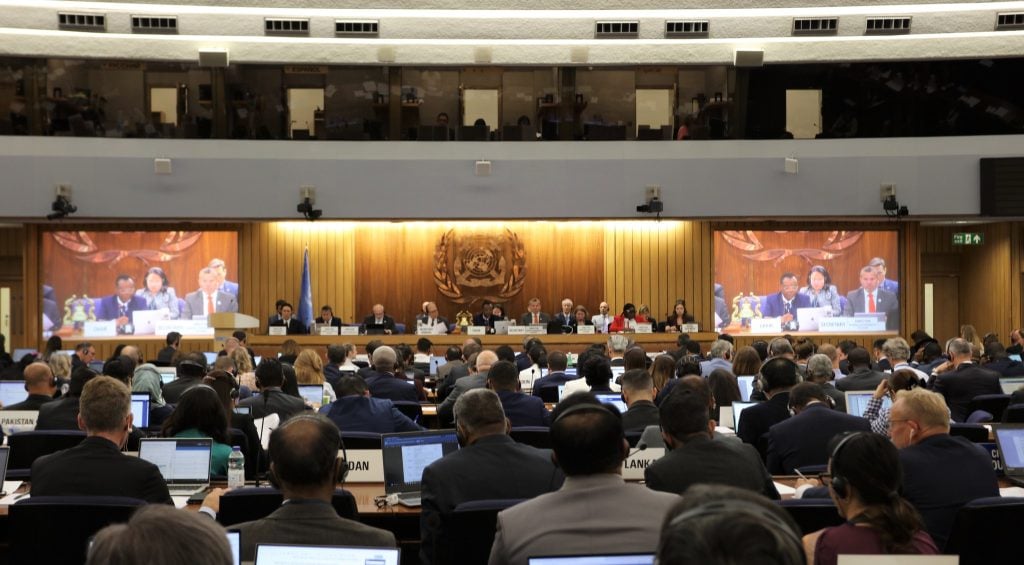Market measures needed to realise MEPC net-zero consensus

IMO’s Marine Environment Protection Committee (MEPC) adopted its revised greenhouse gas (GHG) emissions strategy on July 7, agreeing to target net-zero emissions “by or around” 2050. The new target is supported by ambitious “indicative checkpoints” for 2030 and 2040 – aiming for cutting 20-30% and 70-80% of total GHG emissions from international shipping respectively – as well as a commitment for market-based measures to be decided in 2025 and in force from 2027.
The 2040 checkpoint is particularly significant, indicating that shipping has less than 20 years – far less than the average lifecycle of a commercial vessel – to eliminate the vast majority of its GHG emissions. The transition will call for a step change in the technology and fuels deployed in shipping and, critically, dramatic reductions in the relative cost of these technologies compared with conventional ship solutions and fuels.
Simon Bennett, International Chamber of Shipping (ICS) Deputy Secretary General, said: “We urgently need to reduce the cost gap between conventional and alternative marine fuels and incentivise the production and uptake of new fuels at the scale now required to meet this accelerated transition. 2040 is less than 17 years away and the availability of zero GHG marine fuels today is virtually zero.”
The committee also agreed that regulatory mechanisms to meet the targets would include both an economic measure (carbon pricing) and a technical measure (a fuel standard), to be decided in 2025. Among the proposals for the economic measure is the ‘fund and reward’ levy proposed by ICS, financed by a mandatory contribution by ships per tonne of CO2 emitted to an IMO fund. The scheme would reward early adopters of clean fuels and technology as well as delivering significant funding for research and for climate measures in developing economies.
Bennett continued, “The ICS proposal remains firmly on the table and will now be subject to a comprehensive impact assessment by UNCTAD to be completed by early next year. This will be vital if we are to reach a take-off point by 2030 for the use of new fuels to achieve the extremely ambitious goal which IMO has now set for 2040.”
Further progress was also made on developing lifecycle analysis guidelines for marine fuels, which will underpin any future regulatory measures. The review period for the Carbon Intensity Indicator, set for its first appraisal by 2026, was also confirmed at the meeting in London.
Related content

New IPCC report urges rapid advancement of Net Zero targets

ICS welcomes historic deal to cut shipping’s greenhouse gas emissions

Bjorn Otto Sverdrup: Oil and gas majors target transport emissions
